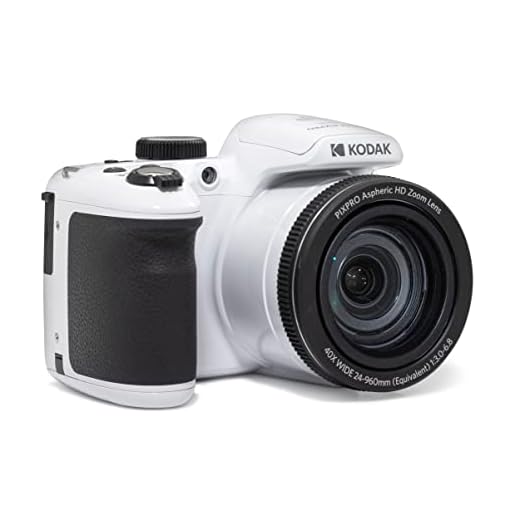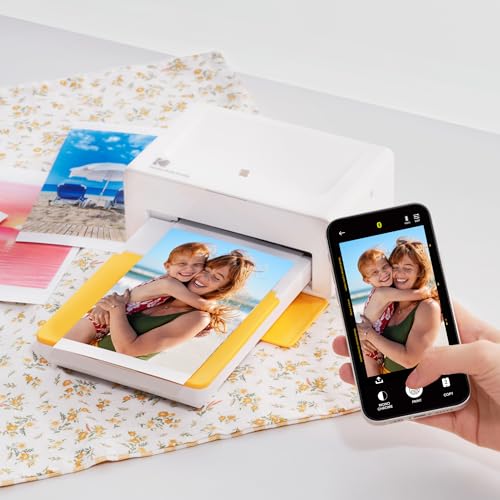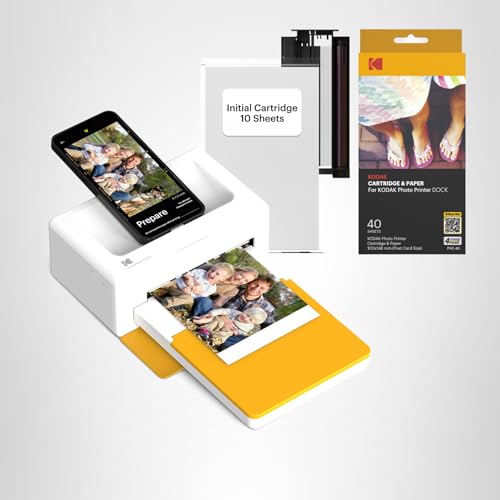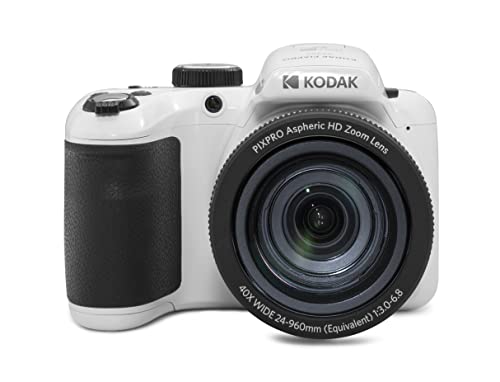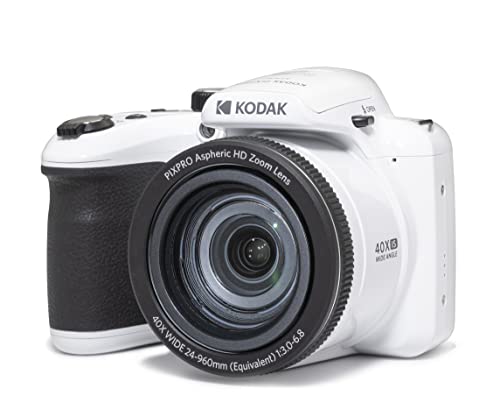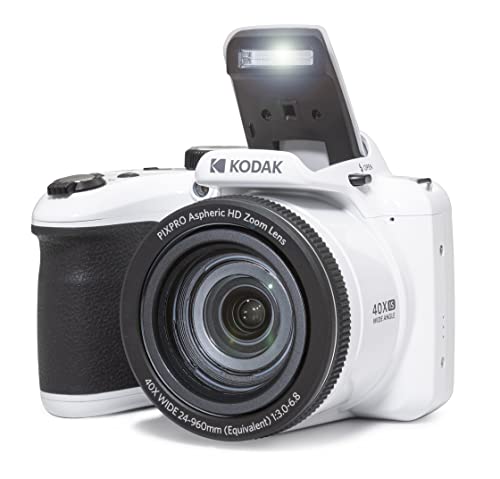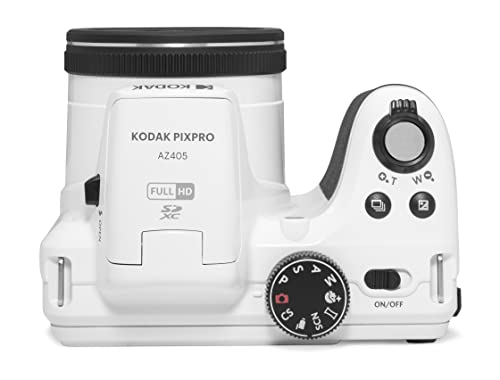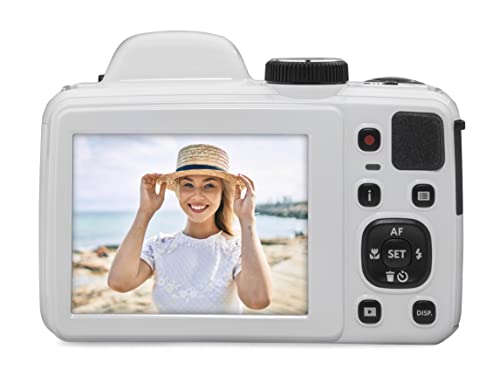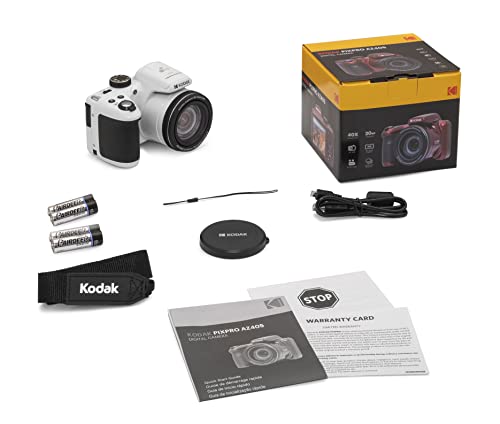




Hi there! If you’re a photography enthusiast like me, you’ll know how important it is to capture high-quality images with your digital camera. One thing that often gets overlooked, though, is the size of the image you’re capturing. Believe it or not, the image size can have a huge impact on the overall quality of your photographs.
So, what is the best image size for a digital camera? Well, it depends on what you plan to do with your images. If you’re just shooting for personal use and don’t plan on printing your photos at large sizes, a smaller image size might be sufficient. However, if you want to print your photos, create large prints, or crop your images extensively, you’ll want to shoot at a higher resolution.
But why does image size matter? When you capture an image with your digital camera, each pixel represents a tiny square of color information. The more pixels you have, the more detail you can capture, resulting in sharper and more vibrant images. However, larger image sizes also mean larger file sizes, so you’ll need to consider the storage capacity of your camera and your computer.
Best Image Size for Digital Camera: Choosing the Right Resolution for Your Photos
When it comes to digital cameras, choosing the right image size and resolution is crucial for capturing high-quality photos. It determines the level of detail and clarity in your images, as well as the file size and storage requirements. In this article, I will discuss the factors to consider when deciding on the best image size for your digital camera.
1. Megapixels: One of the key factors in determining image size is the number of megapixels your camera sensor has. A higher megapixel count allows you to capture more details and produce larger prints without sacrificing image quality. However, keep in mind that higher megapixels also result in larger file sizes, which may require more storage space.
2. Intended Use: Consider the intended use of your photos when choosing the image size. If you mainly share your photos on social media or view them on electronic devices, a lower resolution may be sufficient. On the other hand, if you plan to print your photos or want to retain the flexibility for cropping and post-processing, a higher resolution is recommended.
Additionally, be aware that some online platforms or printing services may have specific requirements for image sizes. It’s a good idea to familiarize yourself with these guidelines to ensure your photos are compatible.
3. Storage and Processing Power: Higher resolution photos with larger file sizes will require more storage space on your memory card and computer. They also require more processing power to edit and manipulate. If you have limited storage space or an older computer, it may be more practical to opt for a lower resolution.
Conclusion: Choosing the best image size for your digital camera depends on factors such as megapixels, intended use, and storage capabilities. It’s important to strike a balance between capturing detailed images and managing storage requirements. Consider your specific needs and preferences to determine the resolution that will work best for you.
Understanding Megapixels: How Pixel Count Impacts Image Quality
As a photography enthusiast, I have always been intrigued by the concept of megapixels and their impact on image quality. Megapixels refer to the total number of pixels in an image sensor, and it plays a crucial role in determining the level of detail and resolution in a photograph. The higher the megapixel count, the more information is captured, resulting in sharper and more detailed images.
However, it is important to note that a high megapixel count alone does not guarantee superior image quality. Other factors such as sensor size, lens quality, and image processing technology also play significant roles in determining the overall image quality. A camera with a large sensor and a high-quality lens will be able to produce better images, even with a lower megapixel count.
When considering the appropriate megapixel count for a digital camera, it is crucial to understand your specific needs and usage. For casual photographers who mainly share images on social media or view them on digital devices, a camera with a moderate megapixel count (around 12-16 MP) would be more than sufficient. On the other hand, professional photographers who often print large-sized images or require extensive cropping and post-processing may opt for cameras with higher megapixel counts (above 20 MP).
Ultimately, the choice of megapixel count should be based on a balance between image quality and practicality. While it is tempting to chase after the highest megapixel count available, it is important to remember that there are diminishing returns beyond a certain point. By understanding how megapixels impact image quality and considering our own needs, we can make informed decisions when choosing a digital camera with the optimal megapixel count for our photography goals.
The Impact of Image Size on Storage Space: Finding the Right Balance
In the world of digital photography, finding the right balance between image size and storage space is crucial. As someone who loves taking photos and capturing memorable moments, I have discovered that managing storage space can be a challenge. In this article, I will explore the impact of image size on storage space and provide tips on finding the right balance.
Understanding the relationship between image size and storage space
When it comes to digital cameras, the size of the image you capture directly affects the amount of storage space it occupies. Higher image resolution and larger dimensions result in larger file sizes, while lower resolution and smaller dimensions lead to smaller file sizes. This means that if you want to save more photos on your storage device, you may need to compromise on image size.
Tips for finding the right balance
- Consider your storage capacity: Before you start taking photos, assess the storage capacity of your device. If you have limited space, opting for lower image resolutions or compressing the images can help you save more photos without sacrificing too much quality.
- Think about your intended use: If you plan to print your photos or display them on large screens, capturing high-resolution images is essential. However, if you mainly share photos online or view them on small devices, lower resolutions may be sufficient and will save significant storage space.
- Experiment and find what works for you: Every photographer has different needs and preferences. Take the time to experiment with different image sizes and resolutions to find the perfect balance between storage space and image quality that suits your style and requirements.
In conclusion
Finding the right balance between image size and storage space is a personal choice that depends on various factors such as storage capacity, intended use, and personal preferences. By understanding the impact of image size on storage space and following the tips provided, you can optimize your storage space while capturing and preserving your precious memories.
Printing Photos: How Image Size Influences Print Quality
When it comes to printing photos, the image size plays a crucial role in determining the overall print quality. As a photographer, I understand the importance of choosing the right image dimensions to ensure the best possible outcome.
One of the key factors to consider is the resolution of the image. A higher resolution means more pixels per inch, resulting in a sharper and more detailed print. To achieve the best print quality, it is recommended to use an image size with a resolution of at least 300 pixels per inch (PPI). This ensures that the image will appear crisp and clear when printed.
Additionally, the physical dimensions of the image should also be taken into account when printing. The size at which you want to print the photo will determine the ideal image dimensions. For example, if you want to print a large poster-sized photo, you will need an image with higher dimensions to maintain a high level of detail. On the other hand, if you’re printing a smaller photo, you can get away with lower image dimensions.
In summary, the image size is a critical factor in determining the print quality of a photo. By choosing the right resolution and dimensions, you can ensure that your prints will be sharp, detailed, and visually appealing.
Web Publishing: Optimizing Image Size for Faster Loading Times
In today’s digital age, web publishing plays a crucial role in delivering information and engaging content to online users. As a web publisher, one of the key factors to consider is the loading time of your website. Users expect websites to load quickly, and if they don’t, they are likely to leave and visit a competitor’s site instead.
Images are an integral part of web content, as they help to enhance visual appeal and convey information more effectively. However, large image sizes can significantly slow down the loading time of a web page. Therefore, it is essential to optimize image sizes to ensure faster loading times and a seamless user experience.
Choosing the right image size:
- Resize images: Instead of using images with their original dimensions, resize them to fit the specific dimensions required for your website. This will help reduce file size without compromising the visual quality.
- Compress images: Utilize image compression techniques to reduce the file size further. There are various tools available that can compress images without significant loss of quality. Experiment with different compression levels to find the balance between size and quality that works best for your website.
- Use appropriate image formats: Different image formats have different file sizes and quality levels. For web publishing, consider using formats such as JPEG for photographs or complex images, and PNG for graphics or images with transparent backgrounds.
Benefits of optimizing image size:
- Faster loading times: By reducing the file size of images, you can significantly improve the loading speed of your web pages. This is crucial for retaining user engagement and reducing bounce rates.
- Better user experience: When a website loads quickly, users are more likely to have a positive experience. Optimizing image sizes ensures that users can access your content without frustrating delays, resulting in increased satisfaction and likelihood of returning visitors.
- Improved SEO: Page loading speed is a crucial factor in search engine optimization (SEO). Search engines like Google prioritize fast-loading websites, so optimizing image sizes can indirectly improve your website’s visibility and search rankings.
In conclusion, optimizing image sizes for faster loading times is a vital aspect of web publishing. By resizing, compressing, and using appropriate image formats, you can create a seamless user experience, improve website performance, and enhance your overall online presence.
Social Media Sharing: Finding the Ideal Image Size for Different Platforms
As a digital photographer, one of the main goals is to share your work with others through social media platforms. However, not all social media platforms are created equal when it comes to image sizes. Each platform has its own specifications for optimal image display, and knowing these dimensions can greatly enhance the impact of your work. Here, I will discuss the ideal image size for different social media platforms to help you effectively share your photos online.
1. Instagram: Instagram is all about visually stunning images, and to make the most of this platform, it is essential to know the ideal image size. The recommended image size for Instagram is 1080 pixels by 1080 pixels. This square aspect ratio ensures that your photos will be displayed in the best possible quality, and it also makes your feed look visually cohesive.
2. Facebook: When it comes to sharing images on Facebook, different dimensions are required depending on the type of post. For regular photo posts, Facebook recommends an image size of 1200 pixels by 630 pixels. This size ensures that your images are displayed optimally on both desktop and mobile platforms. For cover photos, the ideal size is 820 pixels by 312 pixels, while event cover photos should be 1920 pixels by 1080 pixels to ensure clarity and visibility.
3. Twitter: Twitter is known for its fast-paced nature, and as such, it requires images that can quickly grab attention. The recommended image size for Twitter is 1200 pixels by 675 pixels. This size ensures that your images are displayed in-line with your tweets without any cropping or distortion. It’s important to note that Twitter also has a maximum file size limit of 5 MB, so be sure to optimize your images accordingly.
- Instagram – recommended image size: 1080×1080 pixels
- Facebook – regular photo post size: 1200×630 pixels, cover photo size: 820×312 pixels, event cover photo size: 1920×1080 pixels
- Twitter – recommended image size: 1200×675 pixels
By understanding the ideal image sizes for different social media platforms, you can ensure that your images are displayed as intended and make a lasting impression on your audience. Remember to always optimize your images for web and consider using image compression techniques to reduce file size without compromising quality. With the right image size, your work can truly shine on social media.
Resizing and Cropping: Making the Most of Your Digital Camera Images
As a photography enthusiast, one of the challenges I often face is finding the best way to showcase my digital camera images. One technique that I have found incredibly useful is resizing and cropping my photos to enhance their composition and visual appeal.
Resizing allows me to adjust the dimensions of an image to make it fit specific display requirements or to reduce the file size for easier online sharing. Whether I want to print a high-resolution image or upload it to a website, resizing ensures that the image looks its best in any format. By maintaining the original aspect ratio, I can avoid distorting the image and preserve the intended composition.
Cropping is another powerful tool I use to improve the visual impact of my photos. It allows me to remove unwanted elements or distractions from the frame, focusing the viewer’s attention on the main subject. Cropping also enables me to experiment with different compositions and perspectives, creating unique and compelling images.
Both resizing and cropping can be easily accomplished using photo editing software or even built-in functions on digital cameras. With these techniques, I can make the most of my digital camera images, enhancing their overall quality and impact.
Tips for Choosing the Best Image Size for Your Digital Camera: Conclusion
In conclusion, selecting the appropriate image size for your digital camera is essential for ensuring high-quality photographs while also managing your storage space effectively. By considering the factors discussed in this article, you can make an informed decision that suits your specific needs and preferences.
To recap, here is a summary of the key points to consider:
- Resolution: Higher resolution cameras provide more detail, but also consume more storage space.
- Intended use: Determine the purpose of your photographs (e.g., printing, online sharing, or archiving) to determine the necessary image size.
- Available storage: Consider the capacity of your memory card and the availability of external storage options when selecting an image size.
- Editing requirements: If you plan to edit your photos extensively, larger image sizes with higher resolutions are recommended to preserve image quality.
- Monitor and printer capabilities: Consider the resolution and capabilities of your monitor and printer, as higher resolution images may not offer noticeable benefits if the display or output devices do not support them.
By taking these tips into account, you can confidently choose the best image size for your digital camera, ensuring that your photographs are of excellent quality while also allowing for efficient storage and usage of your camera equipment.
Best image size for digital camera
Features
| Part Number | KB-700 |
| Model | KB-700 |
| Warranty | 2 Year |
| Color | Black |
| Release Date | 2024-01-01T00:00:01Z |
| Size | 8MP document camera |
| Price history for Kitchbai 4K USB Document Camera | |
|---|---|
|
Latest updates:
|
|
Features
| Part Number | DC101L |
| Model | DC101 |
| Warranty | 1 Year Warranty |
| Color | Off White |
Features
| Model | W08 |
| Color | YL15-W08-C-Black |
| Is Adult Product |
Features
| Model | W08 |
| Color | YL15-W08-C-Pink |
Features
| Part Number | CAR-PD460Y |
| Model | CAR-PD460Y |
| Warranty | 1 year |
| Color | color |
| Size | Dock Plus + 90 Sheets |
| Price history for KODAK Dock Plus Instant Photo Printer | |
|---|---|
|
Latest updates:
|
|
Features
| Part Number | AZ405-WH |
| Model | AZ405-WH |
| Warranty | 1 year manufacturer |
| Color | White |
| Release Date | 2022-11-05T00:00:01Z |
| Language | English |
| Price history for KODAK PIXPRO AZ405 Digital Camera | |
|---|---|
|
Latest updates:
|
|
Features
| Part Number | MB-SY512SB/AM |
| Model | MB-SY512SB/AM |
| Warranty | 1 Year Manufacturer |
| Release Date | 2023-10-24T00:00:01Z |
| Size | 512GB |
| Price history for Samsung PRO Ultimate 512GB Memory Card | |
|---|---|
|
Latest updates:
|
|
Question and answers:
What is the best image size for a digital camera?
The best image size for a digital camera depends on your specific needs. If you are shooting for web or social media, a smaller image size such as 4 megapixels may be sufficient. However, if you plan on printing your photos or need to crop them extensively, a larger image size like 20 megapixels or more would be ideal.
How does image size affect the quality of a digital photo?
The image size of a digital photo affects its quality in terms of resolution and detail. Generally, larger image sizes with higher megapixel counts can capture more detail and produce higher-quality prints. However, larger image sizes also occupy more storage space and may require more processing power to edit. It’s important to find a balance between image size, storage space, and processing capabilities based on your specific needs.
What factors should I consider when choosing the image size for my digital camera?
When choosing the image size for your digital camera, you should consider factors such as your intended use, storage space, and processing capabilities. If you primarily share photos online, a smaller image size may be sufficient. If you need to print large, detailed images, a larger image size is recommended. Additionally, consider the storage space available on your memory cards and the processing power of your computer when choosing an image size.


